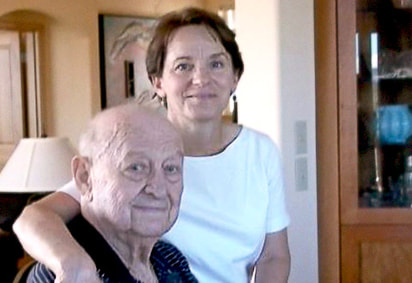Benefits to Help with Elder Care Costs
 You're there to support your Veteran.
We're there to support you!
You're there to support your Veteran.
We're there to support you!
Elder Veterans Legal Aid Group, P.C. is a zero net profit law firm assisting elderly veterans and their families throughout the United States. We are here to help you explore options and advise you on sources available to help absorb the high cost of in-home and/or residential care. This may include (but are not limited to) benefits administered by the Department of Veterans Affairs and Medicaid. Unfortunately, many people are unaware that benefits may be available to help absorb a significant percentage of these costs. Our mission is to help you understand what benefits may be available and their eligibility requirements. Our staff has a combined total of over 25 years consulting with elderly veterans and their families. Our sole mission is to help elderly veterans and their family members obtain the financial assistance necessary to live safely with dignity and peace of mind.
How Can I Get Started?
|
Get Started With One Call
Getting started couldn't be more simple. Call our staff at (toll-free) 800-878-2149 and feel free to ask all the questions you want! Our friendly and knowledgeable staff of elder care specialists and paralegals will help you understand what benefits may be available, the associated eligibility requirements, and answer any questions you may have. There are no fees or obligations of any kind for this initial discussion. |
What To Expect When You Call
Our staff will walk you through a brief introduction to VA benefits and then ask some questions to determine which VA program may best apply in your particular situation. We will also ask some specific questions regarding eligibility. At the end of this 15-30 minute phone call, you will have an excellent idea of your entitlement rights and whether or not you potentially qualify for benefits. |

The Huge Problem Faced by Many Seniors
“Assisted living or non-medical in-home care is often the beginning of a senior care journey and, therefore, the start of the costs associated with this important care. Today, there are over 28,000 assisted living communities throughout the United States who charge a monthly average of $4,500 for room, board, and care. In-home care averages an hourly rate of between $27-$35 with a usual 4-6 hour per week minimum care commitment. Unfortunately, the median monthly income for a senior over 65 is $4,200 according to the Bureau of Labor Statistics. This can leave a significant financial monthly shortfall in the ability to pay for care. Plus, the average life expectancy is 79 years and the average length of stay in assisted living is 22-months. This combination of need and financial ability to cover the cost for care often leaves a substantial shortfall especially when other expenses such as insurance, utilities, food, clothing and other needs are factored into the equation. However, there are certain programs and benefits (other than private insurance) that can often help absorb a significant percent of these expenses. The complication is that most seniors and their families are not familiar with these options, for example, certain state Medicaid Diversion programs.
“Assisted living or non-medical in-home care is often the beginning of a senior care journey and, therefore, the start of the costs associated with this important care. Today, there are over 28,000 assisted living communities throughout the United States who charge a monthly average of $4,500 for room, board, and care. In-home care averages an hourly rate of between $27-$35 with a usual 4-6 hour per week minimum care commitment. Unfortunately, the median monthly income for a senior over 65 is $4,200 according to the Bureau of Labor Statistics. This can leave a significant financial monthly shortfall in the ability to pay for care. Plus, the average life expectancy is 79 years and the average length of stay in assisted living is 22-months. This combination of need and financial ability to cover the cost for care often leaves a substantial shortfall especially when other expenses such as insurance, utilities, food, clothing and other needs are factored into the equation. However, there are certain programs and benefits (other than private insurance) that can often help absorb a significant percent of these expenses. The complication is that most seniors and their families are not familiar with these options, for example, certain state Medicaid Diversion programs.
For more information about benefits that can help with the high cost of senior care, call us at 1-800-878-2149.
|
| ||||||||||||

